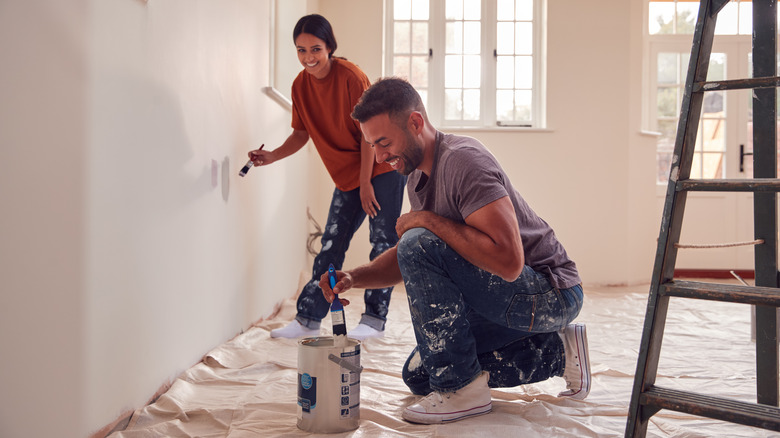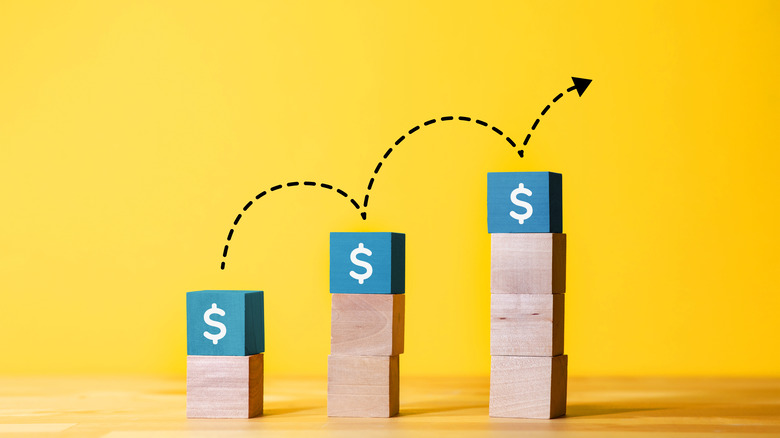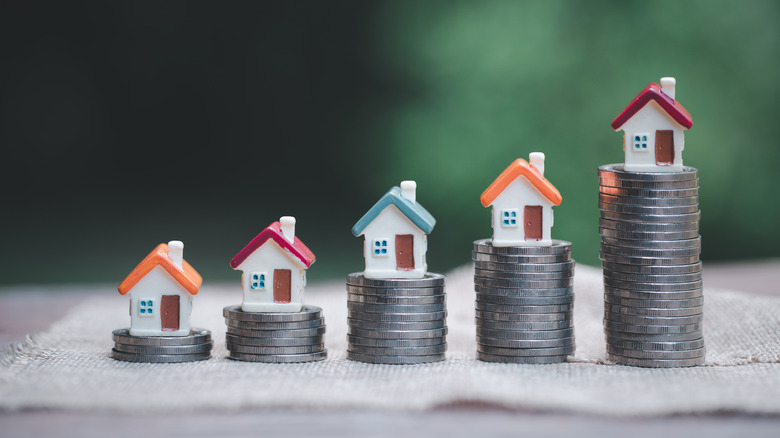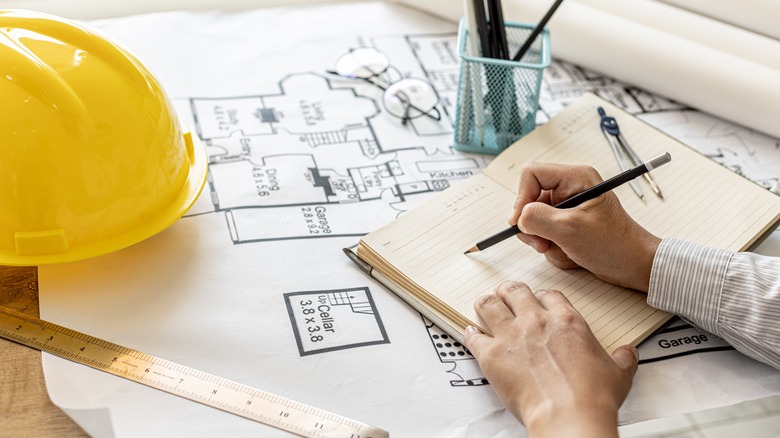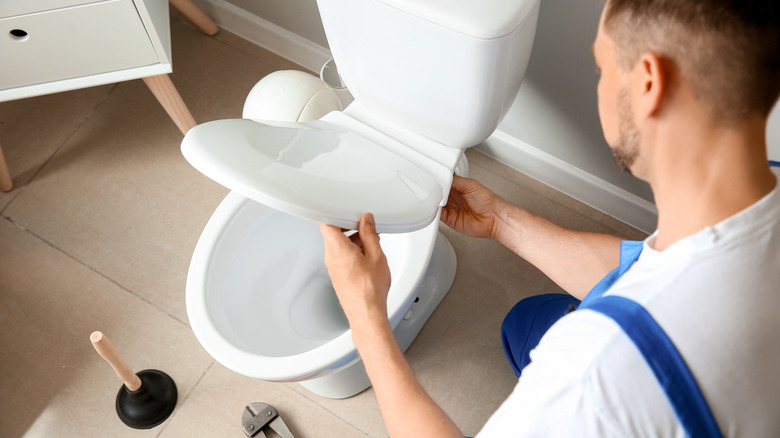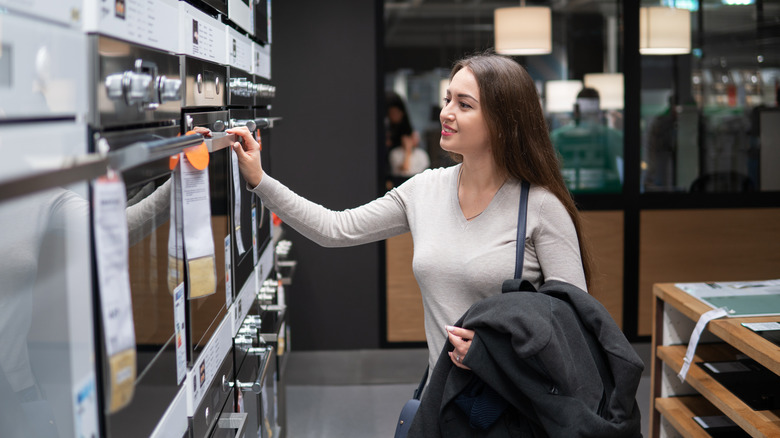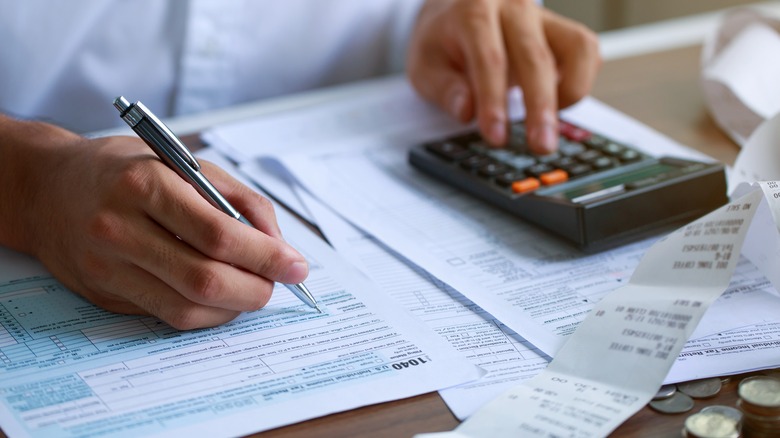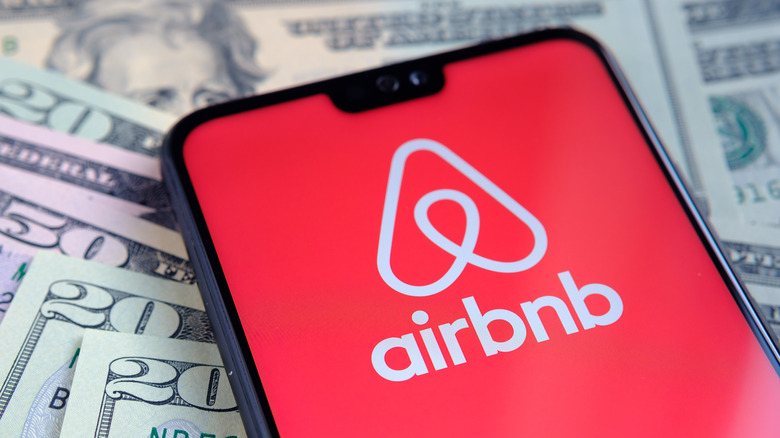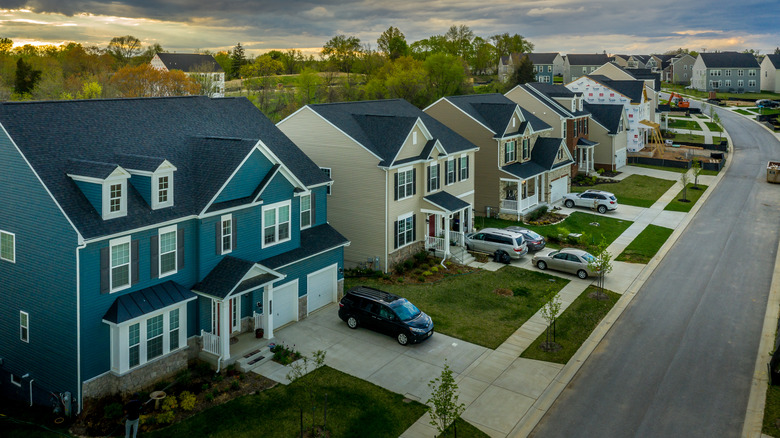Renting Vs. Owning A Home: Which Is Better?
Owning a home is the American dream, but it's not always feasible or even desirable. According to Experian, the average age of a first-time home buyer in the U.S. is 34. It's probably not a coincidence that the average age to get married in the U.S., according to The Knot, is also age 34.
No matter what age, the process of buying a home is a big deal. Homeownership is an investment and requires some life-changing decisions, especially financial ones. If owning a home isn't possible, renting is a great alternative and plenty of people agree. According to iProperty Management, 26% of those renting a home are married couples, and 32% of renting households include children.
It's important to weigh the pros and the cons of renting vs. owning before deciding which way to go. In this article, we'll look at some important differences when it comes to buying or renting a home, so you can make the best decision for yourself and your family.
Renting con: personalizing your home
When renting, you can't personalize your home as much as you can when it's owned. You may be able to hang a few things on the wall when renting, but you usually can't add funky wallpaper or paint the kitchen the color of your dreams. However, Alcove has some advice on how you can personalize your rental. They suggest focusing on color in the form of throws, pillows, or rugs. They also recommend removable wall stickers, unique lamps, plenty of houseplants, and a focus on fun storage organizers to make the most out of your space.
The big difference when owning is you can literally do anything to your home as long as you aren't part of an HOA that has strict rules about changes you can make. Have you always desired a pink bedroom with a crystal chandelier? Go for it when the home is yours. Owning a home definitely gives you a canvas to express your creativity.
Renting con: rent costs can increase
When a mortgage rate is locked in, it's locked for good. According to NerdWallet, when you lock the mortgage rate it freezes until your loan closes, then stays at that rate. This is helpful if the rate is a good one and helps your monthly payment to fit your budget. NerdWallet also points out that mortgage rates fluctuate, sometimes daily. That's why locking it in is important and a benefit of buying a home. Rent, however, can change without much notice. A landlord typically can choose to raise the rent at any time, although usually when a lease is in place, the rent change would happen once the lease is up. This gives renters an opportunity to decide if they want to renew the lease or not.
According to Rent., there are some cities that have no rent control laws, so landlords don't have to explain why rent is going up. Still, a landlord should let you know and give you some fair warning. They also suggest you take a look at your lease to double-check and make sure what the landlord is doing is legal. All in all, if you don't want to risk a rent increase and prefer a locked-in monthly payment, owning a home is a safer bet.
Renting pro: less money upfront
Whether renting or buying a house, you'll need to provide some money upfront. A mortgage, however, will require a larger amount. According to American Family Insurance, the average down payment on a home is $10,000 to $15,000, which is usually around 5 to 6% of the total purchase price. That's come down since the average down payment used to be around 20%. Either way, a down payment on a house is no small chunk of change.
Renters aren't completely off the hook. As PocketSense notes, you should be prepared to pay a security deposit as well as sometimes the first month's rent when signing a lease. The good news is that a security deposit is different than a down payment. Usually, deposits are given back when the lease is up, so long as everything passes inspection. It's there to protect the landlord and the property in case there are any damages. What's not used for repairs is returned to the renter.
As far as upfront costs, buying a home is more expensive.
Owning pro: build some equity
One of the greatest benefits of buying a home is the fact that you get to build equity. Some people feel renting is a waste of money. It's true you can't build equity when renting, but it may not be as bad as people think. According to Be The Budget, renting is a wise choice when you need a place to live and aren't prepared to buy a home. They point out that rent requires no closing costs, no property taxes, and no homeowner's insurance, along with other things you don't have to pay for as you would when owning a home. The point is that while you can't earn equity when renting, it isn't necessarily an unwise decision to rent if that's the best fit for your current situation.
According to American Family Insurance, equity is gained as you pay down the principal balance of your mortgage or when property values go up. For example, if you have a $200,000 mortgage and pay it down to $150,000, you now have $50,000 in equity. In terms of finances, although rent isn't wasting money, it's best to own a home if you want to see your money grow into equity.
Owning pro: ownership equals privacy
Tired of your neighbors? When you own a home, you can block their view with a fence. You can also lock up your home and ignore all visitors. When renting, that may annoy your landlord if they happen to stop by. Speaking of landlords — can they visit anytime? According to Rentec Direct, there aren't any visiting rules for landlords, but they should remain respectful and consider these three elements: rental inspection purpose, tenant privacy, and landlord professionalism. In other words, a landlord should have a legitimate reason to drop in, they should remain professional, and consider your privacy. A rented property does belong to someone else, and your privacy isn't the same as when you own a home.
There are other things to consider when renting. If the walls are thin, your conversations may not be very private, or you may hear things you wish you hadn't from a neighbor. There are also sometimes elevators and front desks to deal with. They aren't bad things, but they also don't lend to privacy. There is one perk, however — if you don't like where you're living due to issues with privacy or neighbors, you can move on when a lease is up and not have to worry about selling a home.
Owning pro: stability and community
You can certainly find a community when renting; however, most people feel a greater connection to the community when they own the home they're in. According to the National Association of Realtors, home ownership offers many social benefits, including reduced crime rates, positive educational achievement, stable neighborhoods, civic engagement, and greater all-around health for homeowners.
Are homeowners happier than renters? Not necessarily. Lots of things in life work together to make a person happy or unhappy. Still, sociologist Christine Carter told CNBC that being able to provide your own home is "an act of independence," and one that allows us to feel stable and accomplished. So, there's no doubt that just the act of looking at houses and considering buying one is a good feeling. If you've ever bought a home, you probably felt more settled than you would when renting. With renting, it's common to feel like it isn't permanent. You can pick up and leave easier. Buying a home tends to make homeowners want to stay put a while.
Owning pro: add additional space
Life changes, leading our housing needs to change. When you own your home, you can choose to create additional space as needed. As Harrisburg Kitchen & Bath notes, a home addition can increase storage, create a specialized space, accommodate a growing family, add value to the home, and may even be an alternative to moving.
If you have a basement, that's another area where additional space can be created. According to Breyer Construction & Landscape, finished basements have similar benefits to an addition. They add value to the home, give greater storage options, are energy efficient, and of course, give homeowners endless possibilities for useful areas.
Basically, when owning a home, you'll seldom run out of ways to rearrange or create more space. Extra bedrooms can become offices, garages can be insulated and turned into rooms, and even the right attic can be useful. All of this is a perk of owning rather than renting.
Renting pro: home maintenance and repairs
A great perk of renting is that when the furnace stops working in the middle of winter, you don't have to fix it. Your landlord takes care of the things that need repairs or replacing. Owning a home means every repair is on you (the joys of home ownership). According to American Family Insurance, a homeowner should budget about 1% of their home's current market value for annual maintenance expenses. That means if your home's value is $300,000, you should budget about $3,000 for maintenance and repairs. Of course, the way a home is taken care of on a regular basis can affect that amount.
Doing regular maintenance will help in keeping repair costs down. According to HSH, every month you should check and replace HVAC filters, check the plumbing for leaks, inspect grout and caulking areas, replace the stove's vent filter if needed, and test your GFCI outlets. That's quite a bit of upkeep, and that's only the quick once-a-month checks. When you're renting, those things aren't your concern. Still, you do want to make sure you rent from a landlord who takes maintenance seriously, so things aren't constantly breaking.
Renting pro: purchase of appliances
Just like home repairs, when it's time to replace the '70s avocado green kitchen appliances, it's all on the homeowner to do so. If renting, the landlord has to foot the bill. According to HomeAdvisor, expect to spend an average of $2,175 for a new home appliance, though the price per appliance varies depending on what it is. That's an excellent perk of renting. The cost of new appliances isn't on you. Unfortunately, some landlords probably try to hang on to old appliances as long as they can so they can save money. That's understandable, but be sure to let a landlord know if it's become difficult to use something because it's so outdated.
Kitchn has a few ideas to get your landlord to replace those old appliances. First, they suggest you negotiate for appliances before resigning your lease. If you've been a good tenant, they'll want to keep you. Second, offer to move in sooner and start paying rent if they replace the appliances. Third, pay rent in advance, and lastly, offer to split the cost of the appliances with them. If you plan on staying there a while, it's worth it to enjoy cooking and doing laundry.
Owning pro: something to pass on
A paid-off home is a wonderful thing to pass on to your children someday. Even if they don't want to hang on to it, they can sell the home and gain a profit. In order to have something to hand down, the mortgage needs to be paid off or at least have plenty of equity built up. Make it a goal to pay down your mortgage as soon as possible.
According to Rocket Mortgage, the average American chooses a 30-year mortgage, so they have 30 years to pay off the house. Although that's average, it's possible to pay a home off sooner. U.S. News & World Report states there are a few options to help you get the mortgage paid off faster. They suggest making bi-weekly payments rather than paying only once a month, setting money aside for an additional payment once a year, refinancing, and considering a flexible term or adjustable-rate mortgage. Try one of these options, or as many as you can, to get the house paid off.
In the end, when it comes to renting or buying a home, buying is the only option if you want to have something to hand down to the kids or leave to a loved one.
Owning pro: tax deductions
Who doesn't love a tax break? One perk of buying a home is the tax benefits you'll receive. According to Investopedia, a tax deduction is an amount you can subtract from the amount you owe in taxes, so you can hopefully, pay less. In fact, one of the most common tax deductions is for mortgage interest — something that definitely benefits homeowners each year.
Unfortunately, when renting, there isn't anything you can deduct from the rent you've paid. However, The Ascent points out that you may be able to deduct your home office space while renting if you are self-employed and have a designated area that's used only as your office space. Homeowners can use this deduction as well, but for renters, it may be the only home deduction they get.
Figuring out what you can deduct as a homeowner can get confusing. You might want to employ a tax accountant to help you out. They may think of deductions you wouldn't be aware of.
Owning pro: rent out your home
It's become commonplace for travelers to search for homes to rent, rather than stay in a hotel. As a homeowner, you can consider listing your own home on a vacation rental site for some extra cash. The first step is to check the laws and regulations in your area to make sure it's an okay thing to do. Next, prepare your home. According to NOLO, you can prepare your home by giving it a thorough cleaning, fixing any fire hazards, and safeguarding your valuables with a closet that locks or a safe.
The next step is to equip your home for guests. This includes a well-stocked kitchen with basic cooking and serving utensils and dishes, as well as small appliances such as a coffee maker and microwave. For the bedrooms and bathrooms, make sure there are essential linens and towels, as well as some standard toiletries for guests. For safety's sake, supply a first-aid kit and a fire extinguisher, and make sure all smoke detectors are working. Have fun with little extras, like a notebook full of "to do" ideas for the area, access to Netflix, and some available board games. Lastly, look into sites like VRBO and Airbnb to see which ones are a good fit for your home and area. These professional listing sites will walk you through the process and help you find guests you can trust.
Renting con: what about pets?
Some rentals allow pets and others do not. For many people, that's enough reason not to rent. As a society, we love our pets. It's a good thing too. According to HelpGuide, people with pets are less likely to suffer from depression, they have lower blood pressure, lower triglycerides, and lower cholesterol levels. Pet owners also survive longer after a heart attack than those without a pet. And as we play with our pets, our dopamine and serotonin levels elevate, making us feel relaxed. Go ahead and rent, but make sure you find a place that allows pets so you can reap these wonderful benefits.
Most rentals will charge extra for your pet. This of course isn't the case when you own your own home. Have as many pets as you like (as long as it's sanitary and you aren't breaking any restrictions). Another great benefit of home ownership is the ability to make your home pet-friendly by fencing in a yard, as well as hopefully have a nice neighborhood where you can walk your dog.
Owning pro: greater neighborhood choices
Some neighborhoods and neighbors frown upon rentals and have strict HOA rules not allowing them. As explained by Bankrate, an HOA is a self-governing organization in communities where the homeowners all pay fees to maintain the neighborhood. They also create a set of rules that homeowners must adhere to. Unfortunately, that means the good neighborhoods for rental homes are limited since an HOA is likely to not allow rentals. Don't be discouraged. Sometimes there are neighborhoods that are perfect for renting but not buying, and sometimes there are neighborhoods where you can buy, but you may not necessarily want to. It's all in the search. However, more often, you can find a decent neighborhood to buy a home easier than you can find a beautiful neighborhood to rent in.
In conclusion, home ownership has more benefits than renting, such as the luxury of growing equity, tax deductions, greater privacy, and an ability to personalize your home. Still, renting isn't always a bad choice. It's there when needed, and for some, the enjoyment of having less responsibility from homeownership is attractive.

